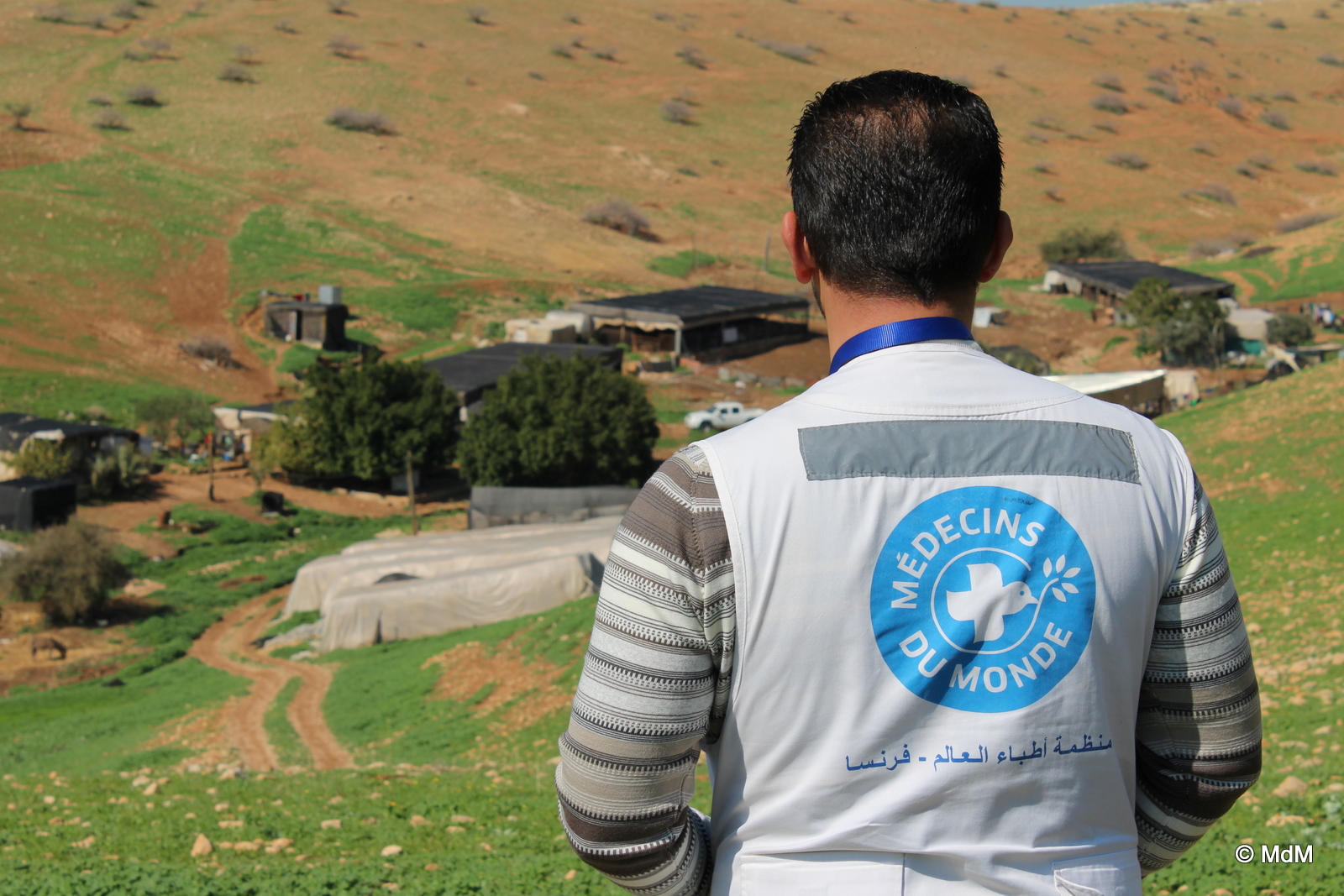Palestine: settlement and occupation, living with everyday violence

As France prepares for an international conference on reviving the Israeli-Palestinian peace process, Doctors of the World is deeply concerned about the psychosocial impact of violence related to the occupation and settlement in Palestine. The organisation condemns the surge in attacks that violate not only the rights of Palestinians but also international law.
Present in Palestine since 1996, Doctors of the World works in Gaza and the Nablus area in the north of the West Bank. In Nablus, the organisation is focusing on delivering psychosocial programmes to prevent and alleviate the psychosocial impact on communities of violence related to the settlement and occupation of Palestine. Incidents resulting from Israeli army incursions, attacks by settlers and demolitions are the most commonly encountered issues.
According to the United Nations’ latest figures, attacks committed by settlers against Palestinians in the West Bank have risen fourfold in less than ten years. These attacks are Increasingly violent and in July 2015 they culminated in the triple murder of the Dawabsheh family in Duma, a crime that received international condemnation. And the past 6 months have seen more than 3 incidents every week, just in the communities where Doctors of the World provides assistance.
Above and beyond the physical impact, this ever-present threat of violence is taking an increasingly heavy psychological toll on our patients. According to our latest assessment:[1] 70% present more than 2 psychological symptoms, such as insecurity, stress and anxiety or problems with sleeping, over half present more than 2 symptoms related to traumatic disorders, such as involuntary memory, intrusive thoughts, loss of attention and concentration and 30% of parents cite a decline in their children’s progress at school. One in every four people has to be referred to specialist mental health services, which exceeds WHO’s forecasts for adults confronted with violence (15 to 20%). With conflict and abuses an integral part of everyday life, this state of severe stress appears to now be the norm — a situation that must not be allowed to become an inescapable fact of Palestinian life.
According to Israeli NGO Yesh Din,[2] complaints related to the occupation and settlement filed by Palestinians have less than a 2% chance of resulting in conviction. In over 80% of cases, police investigations are quickly closed and no action is taken. However, international pressure can make a difference, as those responsible for the Duma murders have been arrested. This pressure must not be reserved for only the most serious incidents.
Under international humanitarian law, the Israeli government is responsible for the security of people living in the occupied Palestinian territories. But in reality, communities are not provided the protection they need and the prevailing climate of impunity serves only to encourage repeated attacks.
While we applaud the reviving of the peace negotiations initiated by France, there can be no hope of resolving the crisis as long as international humanitarian law is not respected and the perpetrators of violence are not brought to justice. As some twenty government leaders assemble on June 3rd to discuss the prospects for peace, Doctors of the World calls on France and the European Union to adopt concrete measures to put a stop to the impunity caused by the settlement and occupation of the West Bank.